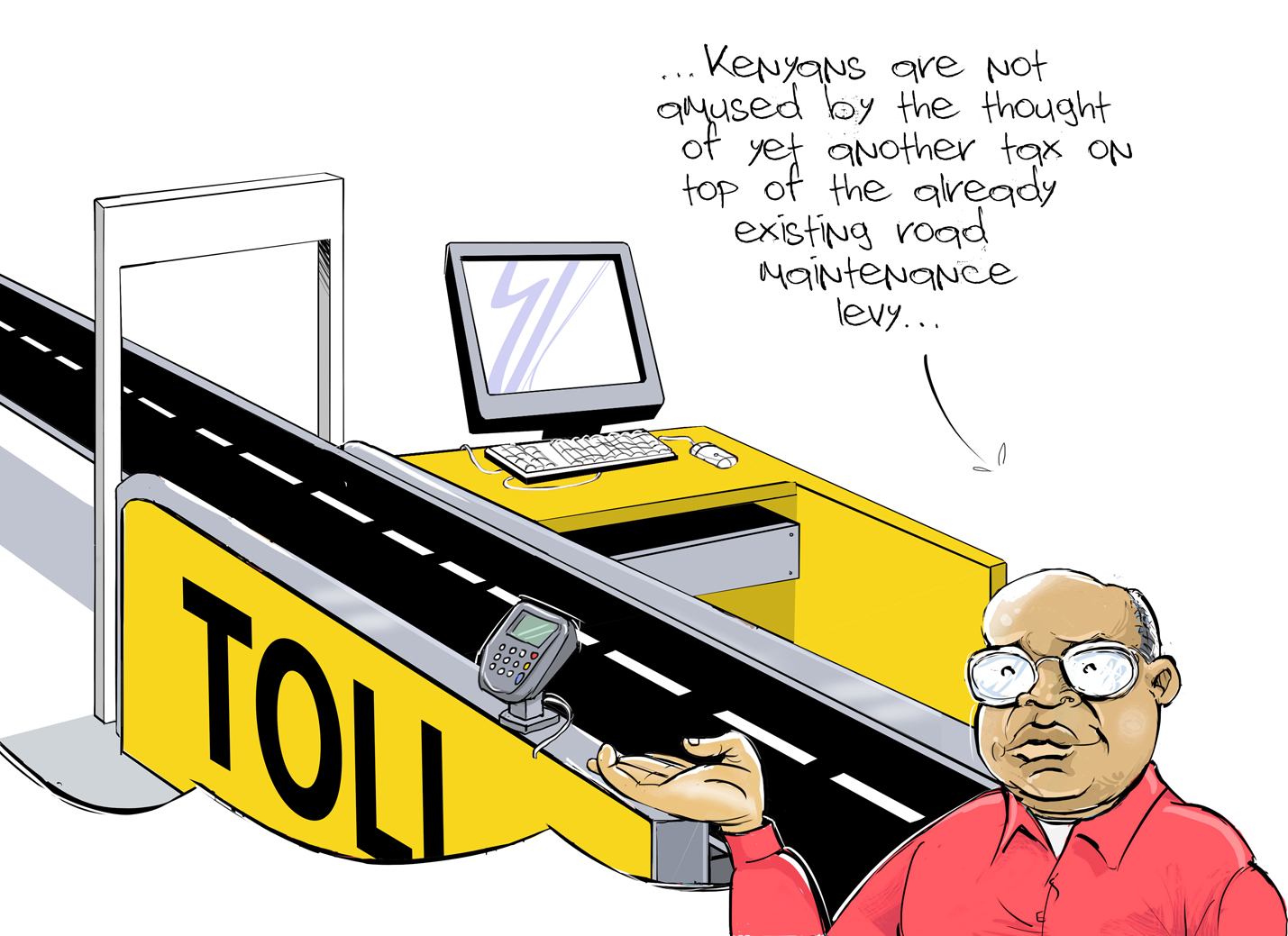
The government is hoping to raise more revenue by tolling major highways countrywide, with Treasury CS John Mbadi eyeing frequent road users to buff up the coffers.
Hopefully, there will be a proper public participation process, during which all views can be aired and considered before any further movement on this issue.
When I say proper public participation, I mean one in which views from every county are heard.
One way to achieve this without breaking the bank would be to pass the proposal to county assemblies and get them to invite the public and interested parties to the assembly.
Their views would be recorded and documented before being forwarded to the national government.
I don’t claim to be a seer, but I can confidently predict that most Kenyans would oppose the plan to increase their already impossible tax burden.
If there is a fight to prevent the imposition of this extra burden, it is best to start getting ready now. Not to wait until the last minute, as many of us are wont to do, to start the opposition.
I say this while fully aware that over the years, Kenyans have not been backward in coming forward to challenge unjust laws and decisions made by successive out-of-touch governments.
However, I am also aware that this government, as well as governments all over the world, often try to exhaust the public with so many dastardly proposals and actions that the people can sometimes lose focus.
This loss of focus and exhaustion is exactly what the state wants, and it is how they get to push through unpopular measures.
When a similar tolling measure, e-tolls, was introduced in the Gauteng Province of South Africa more than a decade ago, it faced public opposition from the start.
When the measure was finally defeated after court challenges and large-scale public opposition, an article in the Daily Maverick noted: “The demise of the e-tolling system in Gauteng stands as a testament to the power of collective action and the refusal to accept unjust policies.”
The e-tolls in South Africa were effectively defeated through a combination of widespread public resistance, legal challenges and ultimately, a political shift, culminating in the government's decision to abandon the scheme.
South Africa’s
Organisation Undoing Tax Abuse (Outa), a civil society organisation, took the
lead in organising against the e-tolls.
When they eventually achieved victory, they said on their website: “Shutting down the e-toll scheme was a multipronged battle fought through courts and official inquiries, across social media, in protest action on the highways, bridges and outside government offices, in the media and in Parliament.”
***
In other news, I recently bumped into Labour CS Alfred Mutua at a supermarket in Malindi.
Many years ago, we worked for the same newspaper, and before he went into politics, we had met socially a couple of times. So I felt I could dispense with formality and say “Hello Alfred,” which I did.
He didn’t seem quite sure who I was. In fairness, I was wearing a cap, and he was seeing me out of context. But he was very polite and returned the greeting as he hurried off to the car park.
While it was refreshing to see a minister do his own shopping and not surrounded by a retinue of security guards and other hangers-on, I wished we had been able to stop and chat.
I really wanted to ask him a few questions about his labour export schemes.
For instance, hundreds of Kenyans have died in Saudi
Arabia, where they have gone to be exploited under the guise of labour
migration.
Knowing this, as he and his officials must do, did he think a wise response was to spend taxpayer shillings on a model Saudi House, where future exploited workers could be trained?










